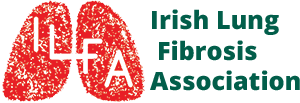New Report Released – Sustaining Patient Registries in Ireland
ILFA are delighted to have contributed to this consequential report on the future of disease registries in Ireland.
“Patient registries are more than just electronic databases; they are tools to transform real-world clinical, social,
and patient-reported data into actionable insights. A registry is an organised system that collects standardised
data over time using observational methods to collect data for a defined population (e.g., by disease, condition,
or treatment). Registries can support research, public health, health care planning and delivery, policy decision making, and inform clinical practice, differing from electronic health records (EHRs) by focusing on longitudinal data for specific scientific or policy purposes rather than individual patient care.
Through statistical analysis, registries identify patterns in clinical, epidemiological, and social data over time,
guiding healthcare providers and policymakers in making informed decisions. As centralised repositories of
information on specific diseases, registries enable better understanding and management of health conditions at
a population level. Registries are crucial in demonstrating the real-world effectiveness of new treatments or
public health initiatives, facilitating healthcare planning and delivery, and enabling clinical trial access. Without
them, patient care and outcomes, research and development and our healthcare system suffer.
Ireland’s registries play a significant role in collecting and leveraging patient data for research, policy, and
practice. Many existing Irish registries have over a decade (some 20 years+) experience collecting, digitising, and
using data to inform research policy and practice as well as contributing data to international registries,
enhancing patient access to therapies, clinical trials and global evidence bases.
Read the full report here: https://cfri.ie/wp-content/uploads/2025/05/FoRT-Report-5-25.pdf
Go Back
